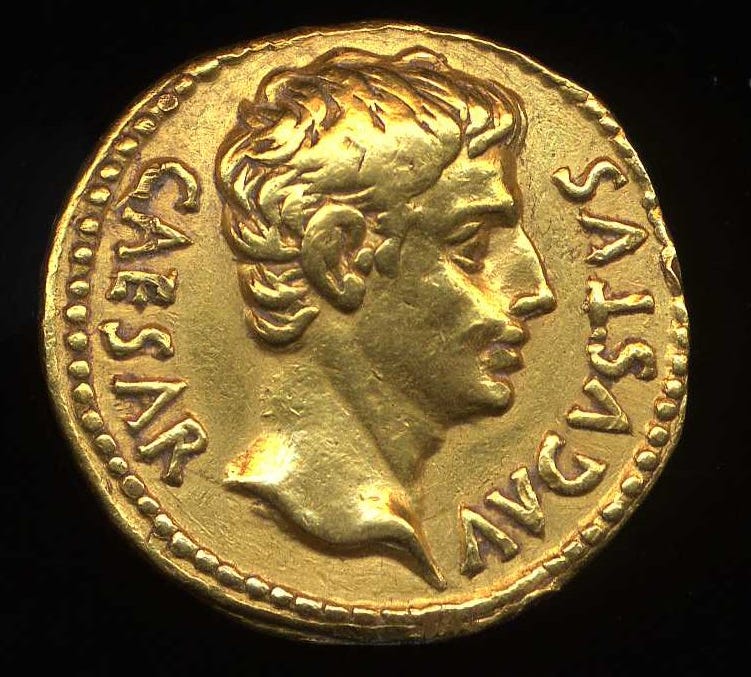Age of Augustus: The Principate of Rome
How Augustus transformed Rome from a Republic into a vast Empire.
The age of Augustus is one that is fondly remembered as one of the most prolific and peaceful in all Roman history. This was all the more satisfying for the Romans, because the famous Pax Augusta came after nearly a century of bloody civil war. Having defeated Mark Antony at the Battle of Actium in 31 BC, Octavian was left standing as Rome’s sole ruler. He enacted a new system for the dying Republic, which would last for centuries.
The Principate
Augustus’ first move after Actium was to outright annex Egypt. This gave the emperor the riches needed to ensure loyalty from Rome’s excessive supply of legions. In 27 BC, he offered to resign, but it was a ploy to secure the Senate’s loyalty. Over the next two decades, he received honorary titles from the Senate, which expanded his powers. He became Pater Patriae (“Father of the Fatherland”) in 2 BC. He became Pontifex Maximus, Rome’s high priest. He created the office of Princeps, or “First Citizen,” to justify his autocratic powers.
Was Augustus’ new empire a representative government? No. Elections were outright rigged to favor certain consuls three years in advance. However, Augustus didn’t care much about elections for lower offices.
Augustus cracked down on corruption through his reforms. In the Late Republic, the provinces were run by corrupt senators who competed for power. The emperor, on the other hand, was interested in Rome’s long-term peace and stability. He urged governors to avoid antagonizing the local population. He carefully picked out provincial governors, and monitored their activity. Governors typically served for a year at a time. They heard petitions, and distributed property. They usually held the powers of the local aristocracy.
At the highest levels, Augustus ensured loyalty by handpicking an inner circle of trustworthy friends. Early emperors relied on a small number of senators and equestrians, who served in unofficial capacities. Starting with Claudius, and throughout the 2nd century, emperors began to rely on freedmen to run the empire’s bureaucracy. To appease the Roman people, Augustus generously distributed honors. That was how he diffused any major opposition in the Senate. The empire maintained the illusion of an even-handed meritocracy, or auctoritas, by handing out political offices and other honors.
Much of Augustus’ power derived from the support of Rome’s military. The Praetorian Guard emerged out of the bodyguard units for field generals. Praetorians lived around Rome, and received higher pay than most. They served for less time. Many Germans owed their entire livelihood to Emperor Augustus, ensuring their loyalty to him. The Prefect of the Guard was a very powerful position. Urban cohorts were used to rush riots, and vigiles were used as night watchmen.
Propaganda
Augustus lavishly sponsored public works projects, art, and other forms of political propaganda. He funded the Pantheon. Its ocular dome shines through the front door on the anniversary of Rome’s founding. As the historian Suetonius tells us, Augustus turned Rome from a city of bricks into a city of marble. He made sure to broadcast those accomplishments to posterity through his self-written resume, The Deeds of Augustus, which he proudly circulated across the empire.
Poetry
The Age of Augustus was a high point for Roman literature. Much of the era’s poetry dealt with the prevalent culture of fear following the civil wars of the Late Republic. This was seen in Horace’s satires, which reflected the social tensions and civic discontent. Virgil’s Eclogues and Georgics presented the beauty and peace of the natural world as being disrupted by these civil conflicts. When Augustus redistributed land to troops after Philippi, Virgil used this as a ploy point in his opening poem. The most important work was Virgil’s Aeneid, an epic poem glorying Rome’s alleged Trojan history.
When Augustus passed the moralizing Julian Laws in 18 BC, adultery was outlawed. Citizens were given legal and tax incentives to have kids. Widows were legally required to remarry. Other restrictions were placed on marriage. These laws were extremely unpopular. The poet Ovid responded by writing The Art of Love, which talked openly about how to seduce women. He recommended starting with the maid. For his salacious love manual, Ovid was permanently exiled to the Black Sea. Augustus’ daughter was exiled around the same time, leading to speculation that she was involved amorously with Rome’s charming love-poet.
End of an era
Augustus died in 14 AD, at the age of 75. Succession went to Tiberius, the first son of his wife Livia. It was not his first choice; it was not even his fourth choice. But it didn’t matter. The memory of the Old Republic was long gone by this point. The Romans were too young to remember it, or else were murdered in the civil wars of the Late Republic.
Augustus made numerous accomplishments on behalf of Rome. He worked to restore the Senate’s prestige, improved food security for the lower classes, and relinquished control of the army when he became consul. He reformed tax collection, which had been hopelessly corrupt and exploitative in the provinces. He personally financed a network of Roman roads, which made it easier for legions and civilians to travel. Ancient writers were unanimous in their praise of his larger-than-life construction projects.
But the Principate Augustus left behind still had many flaws. Like any monarchy, it depended on inheritance. The role of Princeps was more restrained than a traditional monarchy, but it was a facade for what was effectively a military dictatorship. The Romans became aware that, under Augustus, political power was no longer located in the city itself.
Nevertheless, the First Citizen’s reign would forever be cemented into the annals of history.





